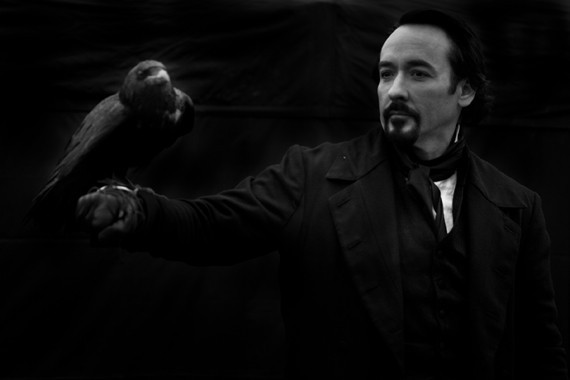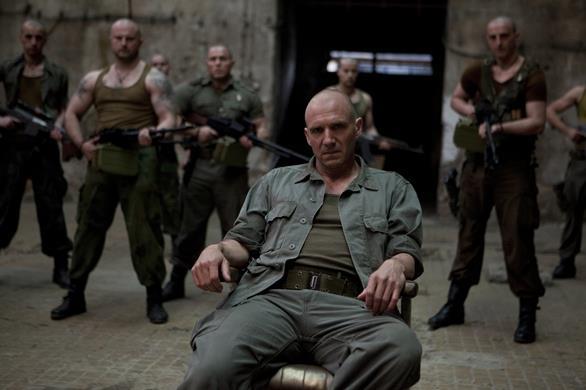The Master is not a film about
Scientology. It is neither the cult expose or the thinly veiled L.
Ron Hubbard biopic that so many were expecting back when it was first
announced. Instead it sees director Paul Thomas Anderson returning to
the marginal lives and restless souls of his 1997 breakthrough Boogie
Nights. Joaquin Phoenix plays Freddie Quell, a WWII veteran and
deeply troubled alcoholic drifter who finds himself drawn to
writer Lancaster Dodd and his faith based movement The
Cause. If There Will Be Blood was a dark fable of the men who built
America on a foundation of greed and brutality, then The Master is
about the attempts to reassemble it in a shattered, post-war world.
Anderson abandons conventional
narrative almost completely in favour of character drama as Dodd's
creation grows and he attempts to locate and heal the source of
Freddie's unrest. As the ambiguously intentioned Dodd, Philip Seymour
Hoffman reassures everyone that he's still one of the finest actors
of his generation, his charmingly arrogant demeanour and explosions
of startling rage a mixture of Hubbard and Orson Welles. One of the
film's biggest surprises is his steely wife Peggy, played entirely
against type by a Machiavellian Amy Adams. The implication that she
is the real mastermind behind The Cause is one of the film's many
avenues left tantalisingly unexplored.
Nobody is anything less than perfect,
but Phoenix is beyond extraordinary. Freddie is a fascinating
creation, demanding and deserving of comparisons to the great
outsiders of cinema; to the likes of Travis Bickle, Randle McMurphy
and Jim Stark. It's a performance of both jaw-dropping magnitude and
heartbreaking subtlety. Phoenix's entire body is bent out of shape,
and his remarkable face is twisted into a permanent mask of
inscrutable pain and regret. Whenever his anger bursts out in acts of
physical violence, as it often does, it's easy to believe that
Anderson simply set Phoenix loose and pointed a camera at the ensuing
chaos. No matter how the rest of The Master fares with audiences,
critics or awards ceremonies, I have little doubt that Phoenix's
performance will go down as a truly great one.
These characters dominate the screen,
and Anderson gives them suitable scenery to chew. The cinematography is without a doubt the most breathtakingly stunning that you will see all year, and the period detail is beyond reproach. It is set in a perfectly recreated world, and yet it may as well take place on Mars. There's a surreal, disconnected feel to this world that is as unrecognisable and dreamlike as Freddie's hazy recollections of his past. How much of this is his memories? How much of it is even real? Anderson isn't telling.
It's hard not to admire the bravery of Anderson's technique. In many ways he has become the anti-Quentin Tarantino. Whereas the once great Tarantino has retreated further into his fortress of movie geek references with every film, Anderson has shot off the rails of conventional cinema completely and is now ploughing his own trail through uncharted territory. Undoubtedly brave, but certainly not something that will impress everyone.
It's hard not to admire the bravery of Anderson's technique. In many ways he has become the anti-Quentin Tarantino. Whereas the once great Tarantino has retreated further into his fortress of movie geek references with every film, Anderson has shot off the rails of conventional cinema completely and is now ploughing his own trail through uncharted territory. Undoubtedly brave, but certainly not something that will impress everyone.
Whether you like the film or not will
depend entirely on your response to its endless hall of mirrors
approach. It is an ideal film for debate, but certainly not one that
all will find engaging. It's a defiantly unfathomable work, shot
through with a deep core of sadness. But ultimately it is a film
about two men: one whose arrogance and brilliance birth something
that grows far beyond his control, and one broken beyond repair.
Freddie is a man in thrall to the search for his very own Rosebud; a
past that may never have existed and that can never be reclaimed.

.jpg)





